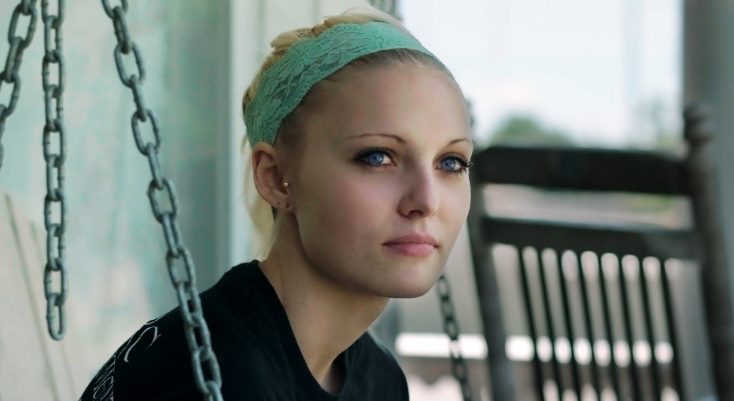By ANGELA DAWSON
Front Row Features
Eight-time Grammy nominee and noted victims’ rights activist Tori Amos can be heard on the soundtrack to the new Netflix documentary “Audrie & Daisy.” She wrote the song “Flicker,” heard at the end of the powerful film, which tells the story of teenage girls who not only were raped by male classmates while unconscious, but also were subjected to further humiliation from cyber-bullying when they came forward with their allegations.
Amos, a mother, a rape survivor as well as a musician, told an audience at a special screening of the film, that it is important for parents to educate and communicate with their children about not being afraid to come forward and to not condemn rape victims as somehow responsible, online or otherwise.
Amos was joined at the screening by two of the film’s subjects—Daisy and Delaney—who each endured unwarranted criticism from their classmates and strangers on the Internet when they came forward with charges against their attackers (who also were students). The documentary, directed by Bonni Cohen, includes interviews with the young women, who were both underage at the time of their attacks. Additionally, Cohen interviewed two of the suspected attackers (whose images are animated in the film because they also were juveniles at the time of the rape), who only agreed to the interviews as a condition of their plea deal, as well as members of law enforcement, attorneys and others involved with their respective cases. One girl, humiliated by the pictures taken of her taken while she was unconscious with scribbles on her body that were circulated by her attackers, couldn’t handle the resulting cyber-bullying and ostracism from her classmates and committed suicide.
The goal of the film, says Amos, the filmmakers and the surviving subjects, is to encourage dialogue between parents, their children and the cyber community, and to point out that shaming rape victims is completely unacceptable.
Q: What does this project mean to you? Why did you want to create this beautiful song?
Amos: When I saw the film I couldn’t speak. I had to watch it again. It was important to me that there was a song that honored Audrie’s tragic story and honored Daisy’s phoenix-out-of-the ashes story and Delaney’s empowerment, and the joining of them together to create an army. I wanted to be part of that army.
Q: The song serves as a rallying cry. No matter how dark a place you find yourself, it illuminates the fact that there are people like these ladies who can help.
Amos: Yes. But lights can flicker out. Unfortunately, Audrie died as a victim and never crossed over into the journey of survivor. This is something we heard from Audrie’s mom the other night (at a screening of the documentary) in New York. She’s now an activist bringing the message (about the Audrie Pott Foundation) to schools.
Q: How has this film changed the way you parent your child? How has this changed the way you communicate?
Amos: Communicating, for sure. It’s a must. This film, to me, is a tough watch but it’s must watch. If you don’t think that this isn’t happening in your schools, it is. Because when I hear about the parties that (my daughter has) been to and what’s happening around her and being aware of it and talking about all these issues, we have to be proactive.
As Daisy and Delaney have said, we have to get involved in the conversation because it’s not happening out there to other people’s kids. It’s all of our kids. Maybe yours won’t experience what (Daisy and Delaney) have experienced, but they might be part of the bullying online. I hope not. We all hope not, right? But it was very clear that the digital bullying online was done by girls as well as boys. And girls turn their backs when it’s happening. It’s important that they’re all talking about the consequences and the education. That’s what these ladies have been saying who have been involved in this film for over two years—about educating and talking about it in schools.






